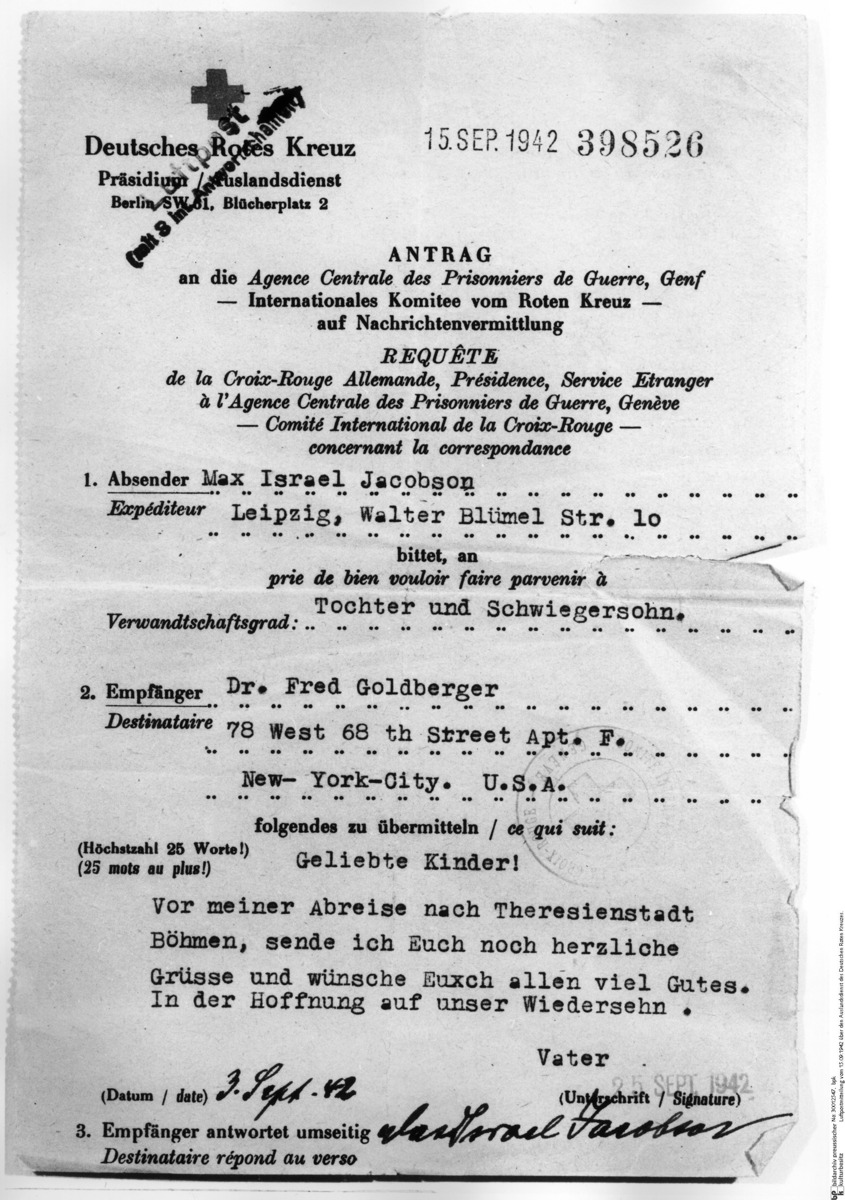Abstract
In this air mail communication from September 15, 1942, Max Jacobson, a Jewish resident of Leipzig, informs his daughter and son-in-law in New York City of his “departure” for Theresienstadt. Apparently, his daughter had emigrated to the U.S. early enough to avoid the Holocaust. Nothing is known of Jacobson’s fate, but it must be assumed that he was murdered in Theresienstadt. It is unclear how much he knew (or suspected) about his coming fate. Likewise, the question of whether he actually believed that he would see his family again – as he writes in his note – remains open. In many cases, people destined for deportation had no chance to tell their families where they were being sent. Often, relatives only learned of their fate years after the end of the war.
This communication was sent through the foreign service of the German Red Cross, which hid its knowledge of the concentration camps and fell silently in line with the Nazi regime. For this reason, the organization has been strongly criticized in recent historical studies.
Jacobson’s message to his family reads: “Dear Children! Before my departure to Theresienstadt in Bohemia, I send you warm greetings and wish all of you all the best. In the hopes that we will see each other again. Father.”
